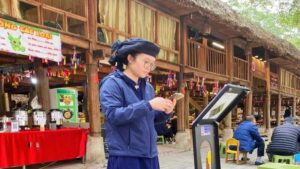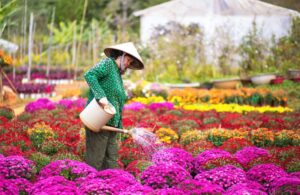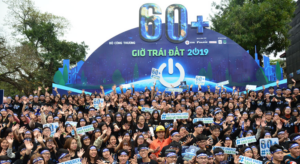Despite complicated development of COVID-19 epidemic in the world and Vietnam, with the accelerated speed of vaccination against COVID-19, the tourism sector is likely to soon develop again; therefore, experts have said that the resort market in the country should make timely preparation for the post-COVID-19 period.

Vietnam's resort market should make timely preparation for the post-COVID-19 period. (Photo: NDO)
Potential prospects
Commenting on investment prospects for resorts in Vietnam, the Director of Savills Hanoi Matthew Powell said that talking to Savills, many international investors expressed their interest in high-luxury resort and hotel property segment, for both operating projects and those in the development process.
He also noted that reason for this wave of investment in the market was the investors’ long-term view of the recovery potential of the resort market in Vietnam after the epidemic is controlled and activities serving domestic and international tourists are reopened.
According to Savills’s market report, the post-pandemic outlook of Vietnam's hotel industry in the first 6 months remains promising. In Hanoi and Ho Chi Minh City, the wave of investment in the resort and hotel market will draw the involvement of famous international operating brands. Accordingly, by the end of 2023, Ho Chi Minh City will have 2,500 more hotel rooms, 70% of which will come from well-known brands such as Fusion, Hilton and InterContinental. In Hanoi, it is expected that 14 projects with nearly 2,600 rooms will be put on the market from the second half of this year until 2023, including big brands such as Eastin, Grand Mercure, Fairmont, Four Seasons, Lotte, Dusit and Wink.
COVID-19 vaccine and speed of reopening tourism
Savills experts have emphasised the importance of vaccination against COVID-19 because it is a factor that helps increase confidence of the tourism sector in its preparation for the reopening of inbound and outbound tourisms. This statement has once again reaffirmed the view on the relationship between COVID-19 vaccination and the speed of reopening tourism that was previously made by international organisations.
On July 5, Senior Vice President of the World Travel and Tourism Council (WTTC) Virginia Messina shared that WTTC believes that the governments around the world should take advantage of its implementation of vaccination against COVID-19, which can significantly ease travel restrictions and spur a broader global economic recovery.
In a report at the end of July, the United Nations’ World Tourism Organisation (UNWTO) pointed out the close relations between the reopening of tourism and the rate of vaccination against COVID-19. The destinations with the most stringent restrictions have low vaccination rates. In contrast, tourism has been gradually recovering in destinations with higher vaccination rates, where the countries can reach agreements on travelling such as Schengen region in Europe.
Vietnam is currently launching the largest vaccination campaign in its history to quickly achieve herd immunity. According to the Ministry of Health's report, 263,272 doses of COVID-19 vaccine were injected on August 4. So far, Vietnam has administered 7.553.318 million vaccine doses across the country, including 6.774.332 million first doses and 778,986 second doses.
Avoiding shortages
With the efforts to control the epidemic and the current Covid-19 vaccination campaign, it is necessary to make good preparations for the resort and hotel market to avoid a shortfall resulting from increased demand when the tourism reopens.
Matthew Powell cited that in the US, hotels are facing certain difficulties following their reopening due to the shortages of staff and supply chain. In addition, the room rates have increased due to the customers’ expectations and large demand for tourism after a long period of travel restrictions.
Tourism in European countries have been improved and many experimental models and processes have been calculated and implemented. Many hotels which had opened previously and maintained only a third of the number of employees or rotated staff had faced shortages in human resources when tourism was reopened. “These are some notable points of the previous market, which requires careful preparation for the domestic market, because otherwise, Vietnam could experience similar difficulties,” said the Director of Savills Hanoi.
T.LinhTranslated by NDO
















